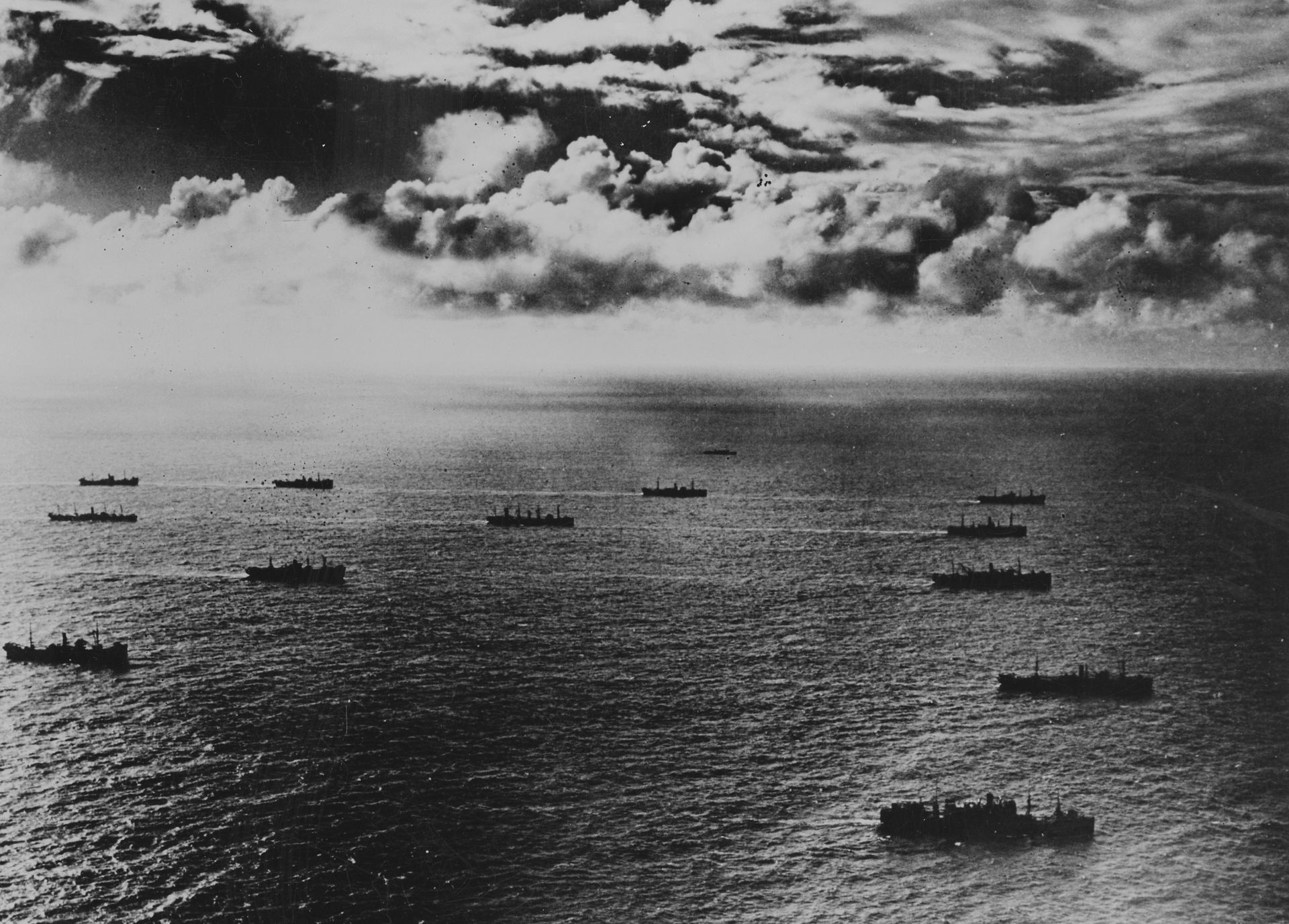

Air Attack in the Mediterranean
The Futility of War
After leaving Algiers North Africa enemy aircraft were sighted approaching the convoy. I was in my cabin when the alarms sounded, but before dropping the deadlight over the cabin porthole I looked across the water into the distance to see what appeared to be a swarm of bees hovering over the horizon. I quickly slipped on my lifejacket and ran up to my emergency station.
Arriving on deck anti-aircraft fire had started, the sky already filled with puffs of black smoke as the anti-aircraft shells exploded. Rumors were rife regarding the origins of the attack, but it was soon confirmed that they were planes from the Italian Air Force. With that information everyone began to relax.
Benito Mussolini, the Italian dictator, had involved Italy in the war on the side of Hitler’s Germany,
The aircraft could be seen quite clearly now, but flying at a high altitude. Loud cheering broke out as they all dropped their bombs into the sea some two or three miles away from the convoy and turning sharply, headed north in the direction of Italy or Greece. That was a relief everybody thought, but suddenly tension rose again, as a lone aircraft appeared, flying at masthead height towards the convoy.
Being so low in the sky the guns could not be brought to bear in fear of hitting a neighboring ship. I stood watching as the plane proceeded through the convoy dropping bombs as it went. Passing my ship, I could clearly see the markings on its side and wings, and the pilot sitting in his cockpit.
Not one bomb found its target, only leaving a trail of water spouts between the ships as they exploded. Someone shouted from a gun turret. “What’s that bloody fool doing?” another gunner responded. “Look, he’s about to commit suicide!”
I looked to see that a destroyer had turned its guns toward the oncoming plane, and as it left the convoy, a violent blast of anti-aircraft gun fire erupted, and the plane disintegrating into fragments which fell into the sea like confetti.
Loud cheering broke out once again but I felt sickened by the whole affair. What a stupid waste. It had just been a spectacle.
The all clear sounded within minutes, signaling that we could leave our emergency stations. As a rule, these incidents were sporadic, so no further attacks were predicted in the near future. Everyone relaxed to resume their normal duties. There would be plenty of discussion amongst the crew about the attack, during the remainder of the day
I sat in my cabin pondering what had happened. My only conclusion. The shooting down of that single aircraft had been a classic example of the futility of war.
To put into context the dropping of their bombs well away from our convoy, which could have been misconstrued as an act of cowardice. I enclose an extract from Wikipedia, about a divided Italy during World War 2.
The northern half of the country was occupied by the Germans with the cooperation of Italian fascists, and became a collaborationist puppet state (with more than 500,000 soldiers recruited for the Germans), while the south was officially controlled by monarchist forces, which fought for the Allied cause as the Italian Co-Belligerent Army (at its height numbering more than 50,000 men), as well as around 350,000 Italian resistance movement partisans (mostly former Royal Italian Army soldiers) of disparate political ideologies that operated all over Italy.
So a country divided.
On 28 April 1945, Benito Mussolini was executed by Italian partisans, two days before Adolf Hitler's suicide.
He looked what he was a big bully.
With regards to Adolf Hitler I quote a statement from my friend Ed a German soldier during WW2, when I asked him if he had ever seen Hitler. "yes, I went to one of his rally's, and to me he looked and acted like a puppet"
Apparently, he used to practice his actions in front of the mirror, before public events.
Just another depraved bully.
A Footnote.
Whoever starts a war must eventually suffer the consequences.
To bullies in our everyday lives, I quote a statement from my mother when I was 7 years old. " Poor things nobody loves them"
